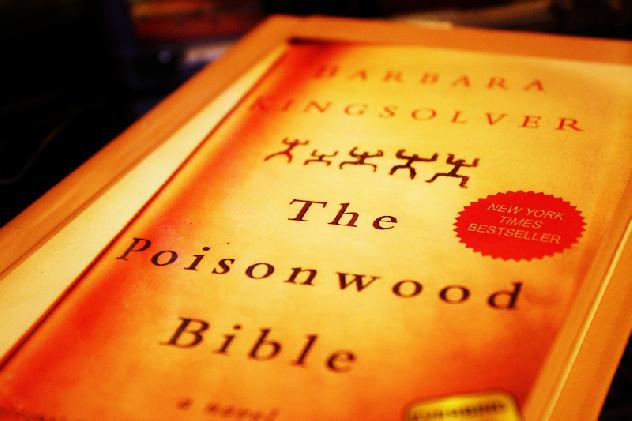

Methuselah symbolizes the crippling effects of oppression, even after he is granted freedom he is hesitant, confused, and ultimately ill-equipped to survive on his own.

Nathan’s failure to see his daughters independent worth, remarking “not marrying veers from God’s plan” reflects the western influences inability to see the Congolese as human being which breeds their cruel, inhumane treatment towards them. Nathan’s refusal to acknowledge the intelligence of Leah and Adah his statement, ““sending a girl to college is like pouring water in your shoes,” mirrors the Belgian rule that the Congolese must stop school after age 12, as Nelson must.
Nathan’s sexism towards his family parallels the western racism toward the Congolese. However, both die prematurely, before their potential is ever fully tapped into. Ruth May – Patrice Lumumba: Ruth May has a vivacious, childish energy and an unfettered spirit that cannot be touched by her oppressive father, similarly Lumumba had a charisma and passion when he spoke that inspired others and relit the fires the western influences has extinguished. 
citizens about their country’s part in exploiting and destroying of the Congo.
The variety of ways the Price women channel their guilt over Ruth May’s death, whether it be the “doer” like Leah or the “forgetter” like Rachel, mirrors the multifarious responses from U.S. Ruth May Price - Daring and Refreshing. Begins just prior to the Congo’s historic declaration of independence and the election of the first native prime minister. Most of the novel takes place in Africa from 1959 to the late 1980s. Events take place in Georgia, in the Congo and in South Africa, depending on which narrative voice is engaged. The Poisonwood Bible By: Kindra, Liz, Allison, Rachel P, Rachel A, and Kiri







 0 kommentar(er)
0 kommentar(er)
